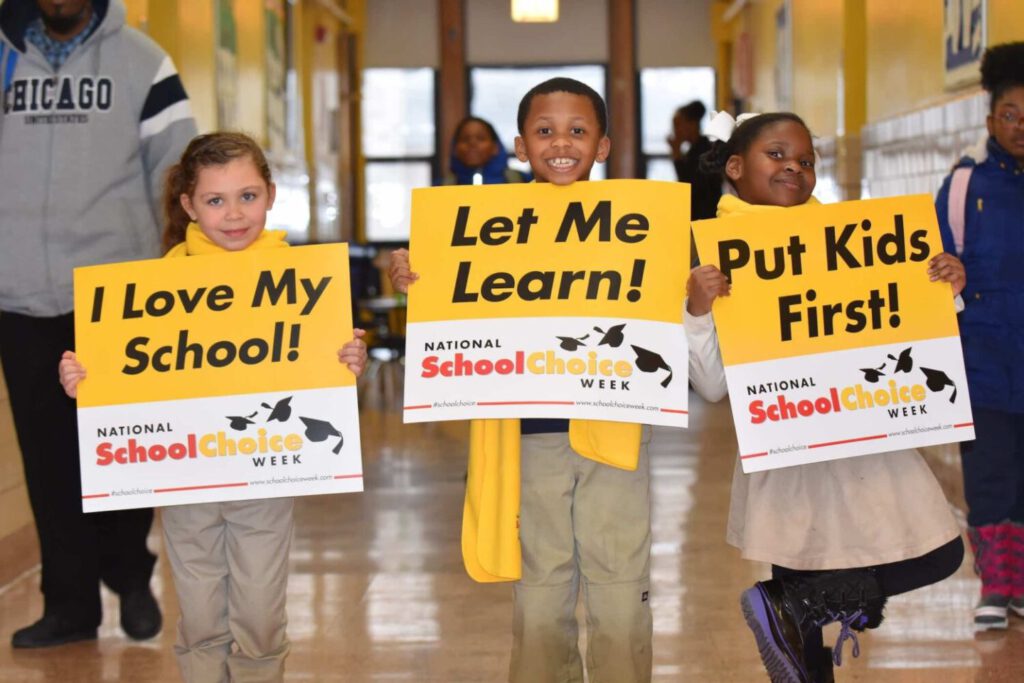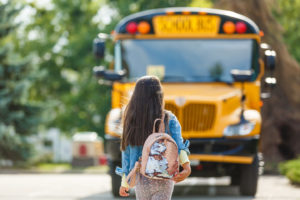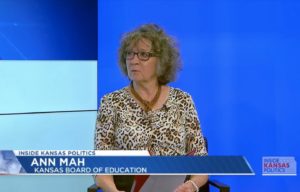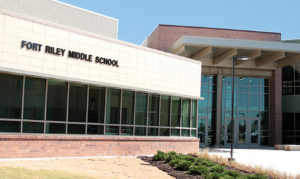Kansas expands school choice tax credit scholarship program in SB 113
(The Sentinel) – Next year a lot more students will be eligible to participate in the tax credit scholarship program with Governor Kelly signing SB 113 today. The Sunflower State’s…

(The Sentinel) – Next year a lot more students will be eligible to participate in the tax credit scholarship program with Governor Kelly signing SB 113 today. The Sunflower State’s only active school choice option is helping 1,340 students to attend 88 private schools this year.
This year, students in families with up to 185% of the federal poverty level could apply to nonprofit scholarship granting organizations (SGOs), which are funded by contributions from individuals and businesses. Donors receive a 70% state tax credit for their gifts, and the SGOs use the donations to provide scholarships of up to $8,000. SB 113 expands eligibility to 250% of FPL, and the value of the tax credit increases to 75%.
The tax credit scholarship program has an annual limit of $10 million in tax credits.
Eligibility has been expanded several times in prior years. The last major expansion in 2021 prompted a jump in participation from 702 that year to 1,113 in 2022 and 1,340 this year.
Achievement is low for most students, and especially for those who are eligible for the tax credit scholarship program.
For example, 62% of low-income high school students are below grade level in math, and only 9% are proficient, but the results for their more affluent classmates are 36% and 28%, respectively.
With extremely low achievement and less than a quarter of one percent of students in the program, one might think the tax credit scholarship program wouldn’t be very controversial. But the debate on the Senate floor demonstrates that those who side with the unions and school officials over students go to extremes to protect the status quo.
Senators Holscher, Sykes, and Reddi make false claims
During the floor debate on SB 113, Senator Dinah Sykes (D-Lenexa) complained that the Legislature has no data to determine whether students getting scholarships are showing academic improvement. While technically true, it’s likely that student-level data cannot be released for privacy reasons. But the Legislature does has data showing that public school achievement has been declining despite significant funding increases, yet Sykes expressed no concern about public school achievement.
She also implied that scholarship money may have been withheld from students, saying, “3,344 students submitted interest. Of those, 2,478 students were determined eligible. Those SGOs…awarded 1,340 scholarships. What happened to the other 1,138 students?”
Sykes was reading from the report prepared for the Legislature by KSDE this year, but she left out “since the start of the program on January 1, 2015.” The 1,340 students Sykes mentioned were awarded scholarships for just this school year. One cannot compare nine years of data to a single year of data and claim that something is missing.
Senator Usha Reddi (D-Manhattan) said public schools are mandatory reporters of suspected child abuse but said she didn’t know if nonpublic schools are required to notify law enforcement. She implied that private schools might not report abuse to protect their donors, whereas public schools “don’t have to look at our donor base, who is donating to our school.” She offered nothing to support her egregious smear against nonpublic schools.
Reddi also expressed concern about accountability on achievement, saying she couldn’t find achievement scores for nonpublic schools. That complaint was echoed by Senator Cindy Holscher (D-Overland Park). Even though Senator Molly Baumgardner previously said accredited private schools must administer the state assessment, Holscher claimed there is no data “like we have in our public schools.”
That’s not true, of course, and Senator Renee Erickson (R-Wichita) called Reddi and Holscher on their deception. She reminded Senators that private accredited schools indeed take the state assessment and the results are published on the Department of Education website.
“So I looked that up very quickly, and the report I saw had free and reduced lunch students reported for public and private schools, so I’ll make a very apples-to-apples comparison.
“For free and reduced students in (English Language Arts), the Wichita Diocese had 38.4% of their students proficient. Statewide totals for the public schools, 19%. For math, Wichita Diocese scores 29%, and for the public schools…, it’s 15.7%”
KSDE doesn’t provide an overall average for all nonpublic schools, but the data for each of the Catholic Dioceses and the Lutheran schools in the Topeka region very clearly have much higher proficiency levels for low-income students than do the public schools. Also, low-income kids in public schools are much more likely to be below grade level in math and ELA.
School participation in the tax credit scholarship program enhanced in SB 113
Up to now, private schools had to be accredited by the Department of Education or another accrediting agency, but that process can take several years. Parental demand for more education opportunities has prompted the opening of many new microschools that typically serve 10 to 15 students, and SB 113 allows them to participate in the tax credit scholarship program if they are working in good faith to become accredited.
That change arguably puts private schools on the same footing as public schools, which routinely are allowed to receive taxpayer funding without being fully accredited. The State Board of Education grants conditional accreditation to districts that are not in full compliance with accreditation requirements.
Holscher objected to the accreditation change and leveled more defamatory remarks about nonpublic schools, saying, “You can have people with criminal records being hired in private schools or starting private schools.” She even said private schools could have pedophiles on staff, and “nothing would happen” for the three to five years it could take to obtain accreditation.
Her outrageous supposition aside, public schools in Kansas and across the nation have unfortunately had staff members arrested on a variety of sexual abuse charges despite working in accredited schools. But logic and facts do not get in the way of people who disregard students’ academic needs to defend unions and bureaucracies
SB 113 allows nonpublic students to participate in KSHSA activities
Another provision of SB 113 allows nonpublic students, including homeschool students, to participate in any activities offered by a public school district that regulated, supervised, promoted, or developed by the Kansas State High School Activities Association.
Participation is allowed as long as the student:
- Is a resident of the school district;
- Is enrolled and attending a nonpublic elementary or secondary school;
- Complies with the requirements of KSA 72-6262 and amendments thereto (health-related requirements); and
- Pays any fees required by the school district for participation in such activity



